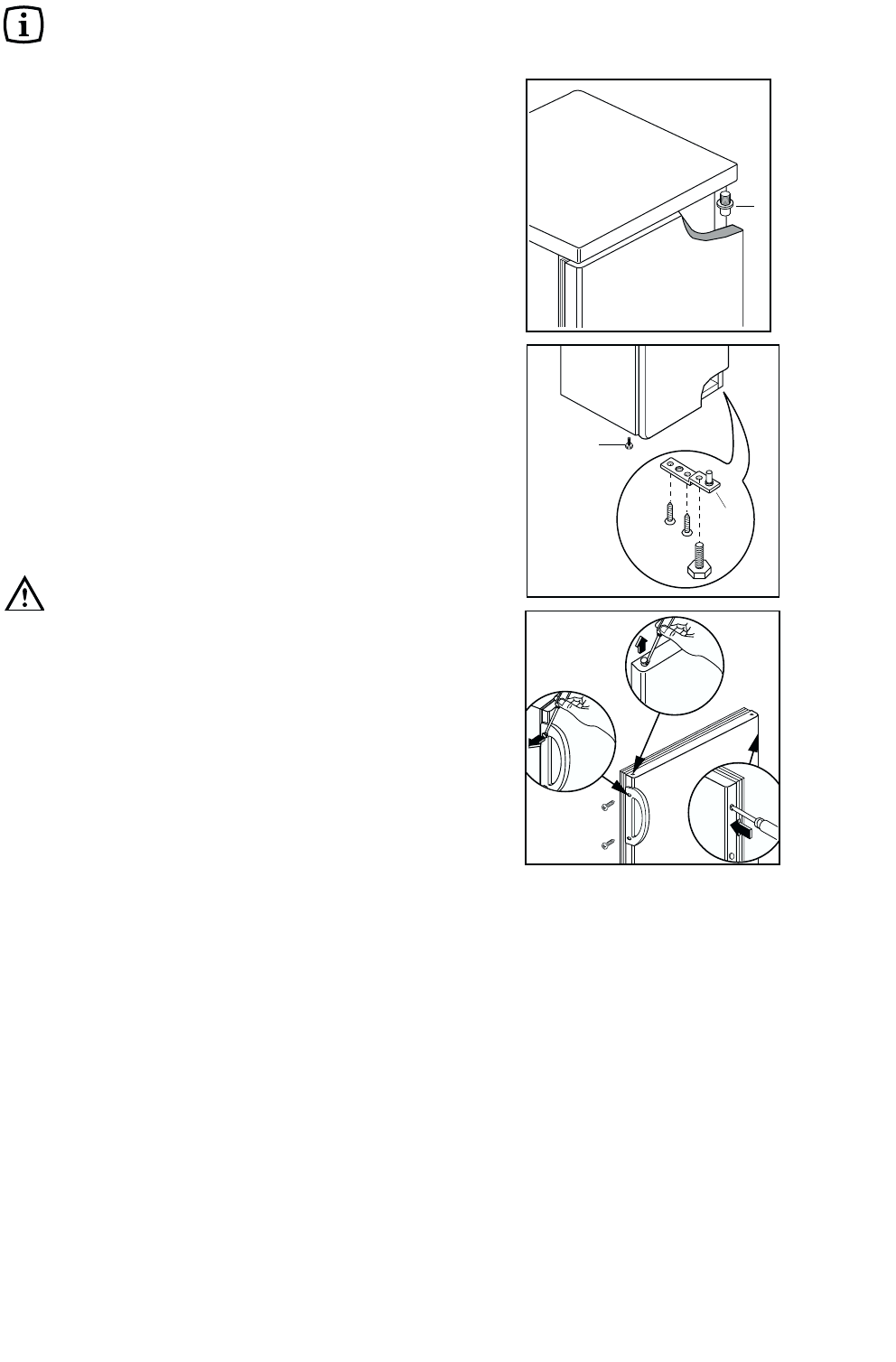
4
OPERATION
Before using
Remove all securing tapes. Wash inside the
appliance with lukewarm water and bicarbonate of
soda (5 ml to 0.5 litre of water).
Do not use soap or detergent as the smell may
linger. Dry thoroughly.
Setting the temperature
The temperature inside the refrigerator is regulated
by a thermostat with 6 temperature positions and an
«OFF» (O) position.
Position 1 = minimum coldness
Position 6 = maximum coldness
Turn the thermostat dial to the required position.
The intermediate position is usually the most
suitable (3-4).
The thermostat setting can vary as the temperature
inside the refrigeration compartment depends on the
following factors:
– room temperature
– how often the door is opened
– how much food is stored
– position of the appliance
Important
During prolonged periods of abnormally hot weather,
if the thermostat is set on too high a number, the
cooling system may operate continuously and the
fridge cooling plate may not defrost. Turning the knob
to a lower number will cause the automatic
defrosting to resume.
Fresh food refrigeration
To obtain the best performance, do not store warm
food or evaporating liquids in the refrigerator; do
cover or wrap the food, particularly if it has a strong
flavour.
Do not cover the shelves with any protective
material, such as paper, cardboard or plastic, which
may obstruct the air circulation through them.
To help you use your refrigerator correctly, here are
some more useful hints:
Raw meat (beef, pork, lamb & wild fowl): wrap in
polythene bags and place on top of the salad
crispers.
Meat can only be stored safely in this way for
one or two days at the most.
Fruit & vegetables: these should be thoroughly
cleaned and placed in the bottom salad crispers.
Butter & cheese: these should be placed in special
airtight containers or wrapped in aluminium foil or
polythene bags to exclude as much air as possible.
Milk bottles: these should have a cap and should be
stored in the bottle rack on the door.
Normal Operating Sounds
• You may hear faint gurgling or bubbling sounds
when the refrigerant is pumped through the coils
or tubing at the rear, to the cooling
plate/evaporator or to the fixed freezer shelves.
• When the compressor is on, the refrigerant is
being pumped round, and you will hear a whirring
sound or pulsating noise from the compressor.
• A thermostat controls the compressor, and you
will hear a faint ’click’ when the thermostat cuts in
and out.
13
Door reversal directions
1. Disconnect from the electricity supply.
2. Remove all loose items, including food, store food
in a cool place.
3. Gently lay the fridge/freezer on its back with the
top held away from the floor by 5-8 cm (2-3
inches) of packing;
4. Remove the feet (3)
5. Remove bottom hinge (1).
6. Slide out the door from pin (G), unscrew the latter
and then screw it down into the hinge provided on
the opposite side, after having removed the small
plugs which should then be fitted on the opposite
side.
7. Refit the door and bottom hinge (1) on the
opposite side.
8. Refit the feet (3) on the opposite side.
9. Unscrew the handle. Refit it on the opposite side
after having pierced the plugs with a punch. Cover
the holes left open with the plugs contained in the
documentation pack.
Attention
After completion of the door reversiing operation,
check that the door gasket adheres to the cabinet. If
the ambient temperature is cold (i.e. in Winter), the
gasket may not fit perfectly to the cabinet. In that
case, wait for the natural fitting of the gasket or
accelerate this process by heating up the part
involved with a normal hairdryer.
G
D715 PIED/C
1
3
PR22


















